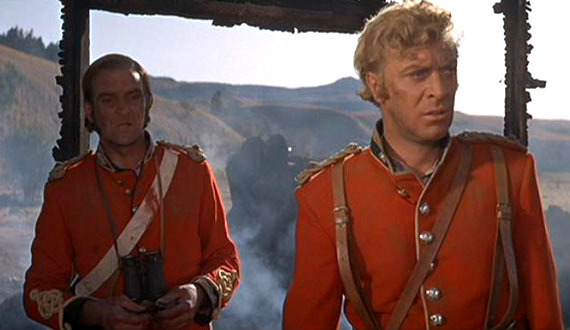
I am currently reading The Washing of the Spears, by Donald R. Morris. This monumental 1965 work is the authority on the Zulu War. It tells the story of two empires, British and Zulu, and their seemingly inevitable military confrontation in southern Africa in 1879. Published just a year after the most excellent movie Zulu, Washing explodes some of the myths in the movie, while appreciating the epic obstacles each army had to overcome. Though small in scope (only six major battles and lasting less than a year) the Zulu War has captured the imagination of gamers like myself for generations, due to the heroism shown by the stubbornly defiant Zulus and the vastly outnumbered British.
The eight most interesting things I learned from Washing are:
1) Jane Austen's great nephew was killed at Isandlwana.
2) There was only one journalist accompanying the British army. How times have changed.
3) The speed of the British army was limited by the digestive system of oxen more than any other factors. Oxen need to graze eight hours a day, and they mush ruminate and digest for another eight, leaving a narrow window for the army to move.
4) Lt. Bromhead, played wonderfully by Michael Caine in the 1964 movie, was deaf. So deaf, in fact, that his superiors doubted his ability to follow orders in a combat situation. Hence he got stuck doing garrison duty at outposts like Rorke's Drift, where attacks were never expected.
5) Looking at a map of Africa, one would assume that South Africa would be far removed from the migrations of populations that you get in Europe and the Middle East. However, the British were the fifth civilization to push into the region, following the indigenous African people, the Hottentots, the Bantu/Zulus, and the Boers. We humans do get around, don't we? I realized that far from being a victimized people, the Zulu were in their turn an aggressive imperial power, very much like the British in many ways.
6) Cetshwayo, the Zulu king, was a savvy politician who understood and even played by the conventions of European diplomacy. He refused to allow his armies to cross the frontier into Natal, even when he had the chance. His hope was to maintain the moral high ground, shaming the British into maintaining the frontier. Sadly for him, Lord Chelmsford believed that the only way to maintain peace with the Zulus was to subdue them through force, rendering all diplomatic plans futile.
7) The 1979 film Zulu Dawn draws heavily on post-Vietnam anxieites about imperialism. Chelmsford and the British in general are protrayed as arrogant, aloof, and totally ignorant of the threat posed by the Zulus. In point of fact, Chelmsford seems to have had a great respect for teh capabilities of the Zulus. He issued a manual describing Zulu culture and tactics to all of his officers. His decision to split his forces at Isandlwana was done in no small part to bait the Zulus into attacking. Had Durnford and Pulleine co-ordinated better and deployed more effectively, Chelmsford's plan might have revealed him a genius. Instead, he gets credited with one of the worst blunders in military history.
8) There was a total eclipse the afternoon of Isandlwana/Rorke's Drift. Neither movie makes mention of this natural phenomenon. Perhaps the directors believed that a natural event so loaded with symbolism would appear too heavy-handed and unrealistic. Just goes to show you: reality frequently blows the doors off of the most imaginative human endeavors.

No comments:
Post a Comment